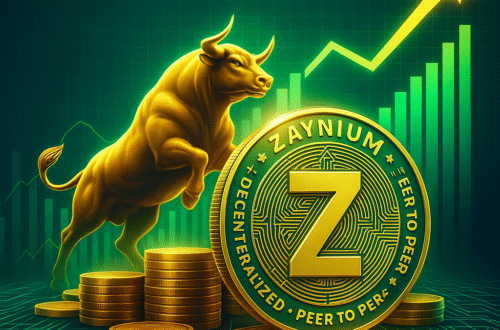Introduction
The cryptocurrency market is undergoing a seismic shift, thanks to the U.S. Securities and Exchange Commission’s (SEC) recent wave of approvals for Bitcoin exchange-traded funds (ETFs). These regulatory greenlights are not just opening doors—they’re tearing down walls, allowing institutional investors like hedge funds, pension funds, and asset managers to pour billions into Bitcoin and other digital assets.
With the SEC’s new leadership under Chairman Paul Atkins—a crypto advocate appointed by former President Trump—the regulatory landscape has shifted from skepticism to proactive support. The floodgates are now wide open, with experts predicting a tidal wave of institutional capital entering the crypto space 17.
In this article, we’ll explore:
- How SEC’s policy shift is accelerating Bitcoin ETF approvals
- The impact of in-kind ETF transactions on market efficiency
- Why institutional investors are rushing into crypto ETFs
- The future of altcoin ETFs (Solana, XRP, and even meme coins)
- What this means for retail investors and the broader crypto economy
1. SEC’s Crypto-Friendly Shift: From Resistance to Embrace
A New Regulatory Era Under Chairman Paul Atkins
Under former SEC Chair Gary Gensler, Bitcoin ETF approvals faced years of delays due to concerns over market manipulation and custody risks. However, since Paul Atkins took over in 2025, the SEC has adopted a more crypto-friendly stance:
- Approval of spot Bitcoin and Ethereum ETFs (2024-2025) 111.
- In-kind creation/redemption for crypto ETFs, reducing costs and improving liquidity 2.
- Streamlined approval process, cutting review times from 240 days to just 75 days for new ETFs 7.
Atkins has called this a “fit-for-purpose regulatory framework,” designed to integrate crypto into mainstream finance while protecting investors 2.
Project Crypto: SEC’s Plan for On-Chain Finance
In July 2025, the SEC launched “Project Crypto,” an initiative aimed at modernizing securities rules to accommodate blockchain-based assets. Key goals include:
- Clearer classification of crypto assets (securities vs. commodities).
- Tokenized stock and bond trading on decentralized platforms.
- Innovation exemptions for experimental crypto projects 5.
This signals a long-term commitment to crypto integration rather than just short-term ETF approvals.
2. How Bitcoin ETFs Work & Why Institutions Love Them
ETFs vs. Direct Crypto Ownership
Bitcoin ETFs allow investors to gain exposure to Bitcoin’s price movements without buying or storing the asset themselves. Instead, they buy shares of a fund that holds Bitcoin, making it ideal for institutions wary of custody risks 311.
In-Kind vs. Cash Creations: A Game-Changer
The SEC’s July 2025 ruling permitting in-kind transactions (where ETF issuers exchange Bitcoin for shares, not just cash) has drastically improved market efficiency:
- Lower costs (no need for constant cash conversions).
- Better liquidity (reducing price discrepancies between ETFs and Bitcoin’s spot price) 24.
Institutional Adoption Skyrockets
Since Bitcoin ETFs launched:
- BlackRock’s iShares Bitcoin Trust (IBIT) holds 3.4% of all Bitcoin in circulation 9.
- 273 public companies, including Tesla and Trump Media, now hold Bitcoin on their balance sheets 9.
- $100 billion in ETF inflows projected by October 2025 9.
JPMorgan, Fidelity, and other Wall Street giants are now offering Bitcoin ETF products to clients, further legitimizing crypto as an asset class 411.
3. Beyond Bitcoin: The Coming Wave of Altcoin ETFs
Solana, XRP, and Even Meme Coin ETFs?
With Bitcoin and Ethereum ETFs already approved, the SEC’s next frontier is altcoin ETFs. Recent guidance suggests:
- Solana (SOL) and Ripple’s XRP ETFs are likely next in line 17.
- Meme coins like Trump’s $TRUMP could also get ETF exposure 1.
- Crypto index ETFs (bundling multiple coins) are gaining traction 7.
Why Altcoin ETFs Matter
- More diversification for institutional portfolios.
- Increased liquidity for smaller cryptocurrencies.
- Regulatory clarity could reduce volatility in altcoins.
4. Market Impact: Volatility, Liquidity, and Long-Term Growth
Bitcoin’s Volatility Is Declining
Historically, Bitcoin was seen as too risky for institutions. But ETF adoption is changing that:
- Deribit’s Bitcoin Volatility Index (DVOL) dropped 58% since 2021 9.
- Options trading (like covered calls) is stabilizing prices 9.
Gold ETF Parallels: Is Bitcoin the Next Gold?
When gold ETFs launched in the early 2000s, gold prices surged as institutional money flowed in. Bitcoin could follow the same path:
- Gold ETFs helped gold’s price rise 300%+ in a decade.
- Bitcoin ETFs could trigger a similar long-term bull run 3.
Challenges Ahead
- Regulatory risks: SEC could still crack down on certain altcoins.
- Market manipulation concerns: ETFs must maintain transparency.
- Competition from CBDCs: Central bank digital currencies may challenge crypto’s growth.
5. What This Means for Retail Investors
Opportunities
- Easier access: Buy Bitcoin ETFs through traditional brokerages.
- Lower risk: No need to manage private keys or wallets.
- Tax efficiency: ETFs often have better tax treatment than direct crypto trading.
Risks
- Fees: Some ETFs charge 0.25%-0.75% annually.
- Tracking error: Some ETFs don’t perfectly mirror Bitcoin’s price.
- Regulatory changes: Future SEC rulings could impact ETF stability.
Conclusion: A New Era for Crypto Investment
The SEC’s Bitcoin ETF approvals mark a turning point—crypto is no longer a niche asset but a mainstream financial instrument. Institutional adoption is accelerating, liquidity is improving, and altcoin ETFs are on the horizon.
For investors, this means:
✅ More stability as institutional money reduces volatility.
✅ Greater accessibility through regulated ETFs.
✅ Long-term growth potential as crypto integrates into global finance.
The floodgates are open. The question is no longer if institutions will dominate crypto markets—but how soon 1711.
Key Takeaways
✔ SEC’s new leadership is fast-tracking crypto ETF approvals.
✔ In-kind transactions make ETFs cheaper and more efficient.
✔ Institutional adoption is surging, with $100B+ expected in ETF inflows.
✔ Altcoin ETFs (Solana, XRP) could be next.
✔ Bitcoin’s volatility is declining, making it more attractive to big investors.
For those waiting on the sidelines, now may be the time to consider Bitcoin ETFs as a regulated, low-friction entry into crypto’s next bull run.
Want to dive deeper? Check out the latest SEC filings and institutional crypto reports to stay ahead of the curve! 🚀





